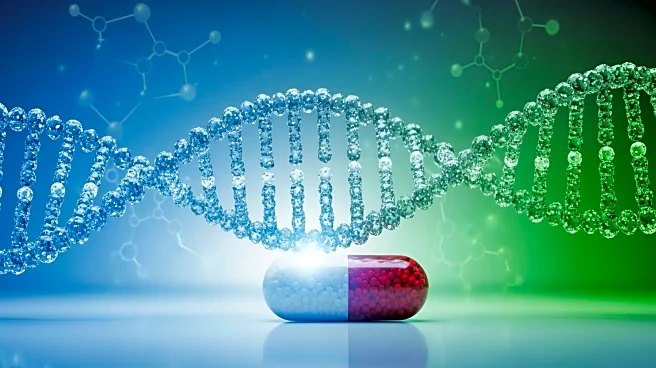What's Happening?
CrossBridge Bio, a biopharmaceutical company based in Houston, Texas, has been awarded the 'Best Drug Developer' title at the 2025 World ADC Awards. The company specializes in next-generation dual-payload
antibody-drug conjugates (ADCs), which aim to provide safer and more durable responses for patients, including those resistant to existing ADC therapies. The award was given by a panel of independent ADC experts and peers, recognizing CrossBridge Bio's innovative approach and progress in the ADC field. The company's lead asset, CBB-120, targets TROP-2 with a dual-payload design and has shown promising preclinical activity.
Why It's Important?
The recognition of CrossBridge Bio at the World ADC Awards underscores the company's leadership in advancing ADC technology, which is crucial for improving cancer treatment outcomes. ADCs are designed to deliver targeted therapy, minimizing damage to healthy cells and enhancing treatment efficacy. CrossBridge Bio's dual-payload approach addresses tumor resistance, a significant challenge in cancer treatment, potentially offering new hope for patients with difficult-to-treat cancers. This award highlights the importance of innovation in biotechnology and its impact on clinical practices and patient care.
What's Next?
CrossBridge Bio plans to advance its lead program, CBB-120, towards clinical trials, with an Investigational New Drug (IND) application scheduled for 2026. The company's continued focus on developing ADCs that tackle tumor resistance and heterogeneity may lead to new treatment options for cancer patients. As the biotechnology industry closely watches these developments, CrossBridge Bio's progress could influence future ADC designs and therapeutic strategies.
Beyond the Headlines
The award not only recognizes scientific excellence but also highlights the potential for ADCs to transform cancer treatment paradigms. CrossBridge Bio's innovative platform, which integrates branched tripeptide linkers and dual-payload technology, represents a significant advancement in precision medicine. This could lead to broader applications of ADCs in treating various types of cancer, emphasizing the role of biotechnology in addressing complex medical challenges.









